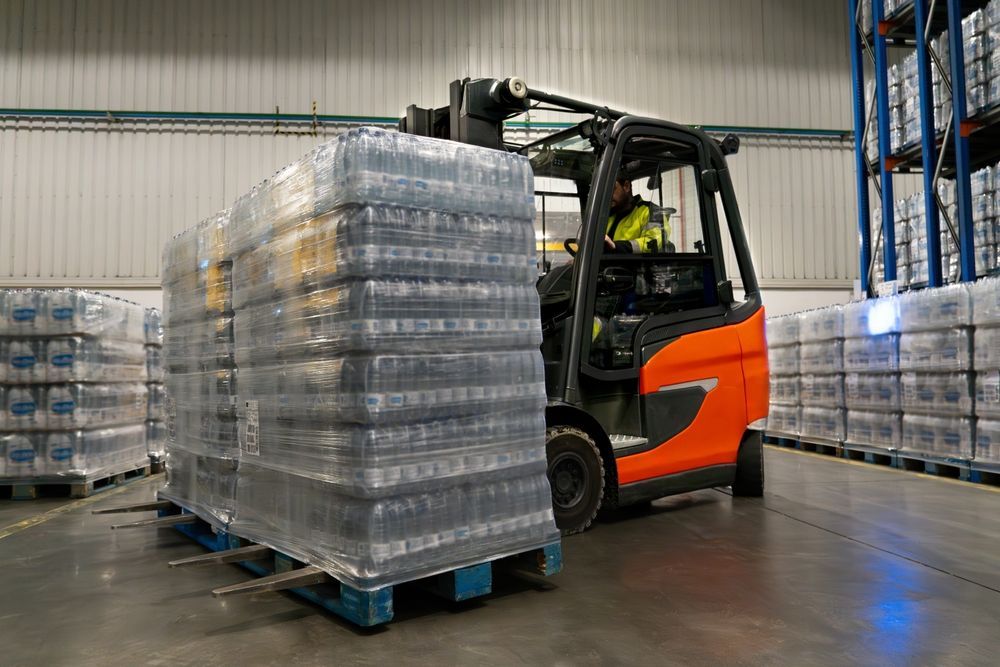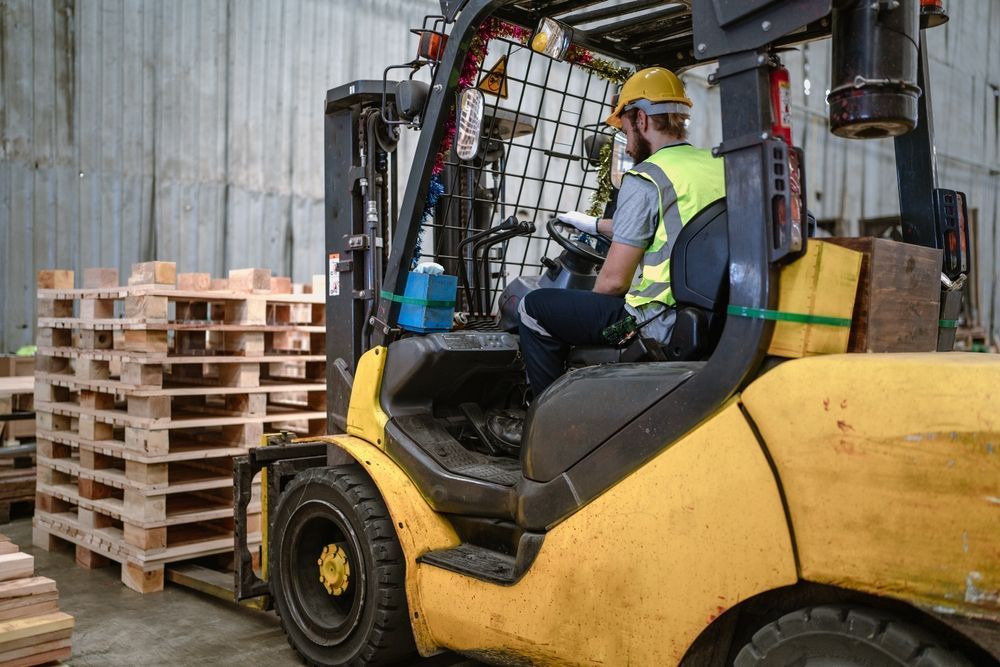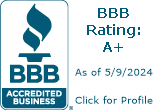VDA Tax Info: What is a Voluntary Disclosure Agreement?

Any sales tax consultant will tell you that a Voluntary Disclosure Agreement, also known as a VDA, is the best way to bring a company in to compliance with its previously unmet sales tax responsibilities. With the recent change in
determining sales tax nexus as a result of the Wayfair ruling , many companies have found that they now have sales tax liabilities in states or other local jurisdictions where sales taxes were not previously collected. In other cases, a taxpayer may have collected the appropriate sales tax, but not yet be registered with the state to remit the sales taxes collected. Regardless of the reason for the outstanding tax liabilities, Voluntary Disclosure Agreements or VDA’s are a helpful method to initiate contact and communications with those states where a company needs to take action to become compliant for sales tax.
What is a Voluntary Disclosure Agreement, or VDA, as it relates to sales tax?
A Voluntary Disclosure Agreement is a legal agreement between a state revenue agency and a company who realizes that it has not met its obligations related to sales and use tax compliance. Through the Voluntary Disclosure Agreement, the company will complete all necessary registrations within the state and will satisfy any outstanding tax liabilities. Going forward, after completing the Voluntary Disclosure Agreement program, the company will have regular monthly, quarterly or annual sales tax reporting requirements with the state depending on the volume of activity within the state.
VDA Tax Info: What Are the Benefits?
Voluntary Disclosure Agreements have several major benefits. Depending on the state, Voluntary Disclosure Agreements will reduce or eliminate penalties and, on some occasions, interest due on uncollected or unremitted sales taxes. Don’t underestimate the savings these reductions or eliminations in penalties and interest can yield! This is especially true in comparison to the increased penalties and interest that can be assessed if a state identifies the company is not in compliance before a company comes forward under a VDA.
Voluntary Disclosure Agreements or VDA’s also limit the lookback period. The limited lookback period is generally 3 to 4 years, depending on the state. The limited lookback period will not apply to a company that has been collecting taxes and not remitting them. In those circumstances, the lookback period must include all periods for which the company has been collecting sales tax.
In Voluntary Disclosure Agreements, most states will allow a company to estimate its previous liabilities, which simplifies the process. With a few exceptions, Excel schedules calculating the tax liabilities will be accepted in lieu of filing all previous sales tax returns. States are willing to make these concessions to ease the process because the states’ main objective is to encourage voluntary compliance with future and ongoing tax collection and reporting responsibilities. In short, the state is willing to forego some of the formalities and even some revenue to bring new taxpayers in to the fold.
Assistance from a sales tax consultant is not necessary to file a Voluntary Disclosure Agreement or VDA application; however, there are benefits in choosing a sales tax consultant to help you through the process. For example, a taxpayer can remain anonymous during the Voluntary Disclosure Agreement request process if it uses a sales tax consultant as its representative. Using a sales tax consultant who is familiar and experienced with the policies of each state’s Voluntary Disclosure Agreement program can eliminate some of the following risks as well.
Ready to get started? Speak with an expert!
What Are the Risks of a Voluntary Disclosure Agreement?
There are several pitfalls a company should be aware of when initiating a Voluntary Disclosure Agreement. The taxpayer must come forward and request the VDA with a state prior to receiving any inquiries, communications or audit notices from the state in question. Some states limit these inquiries, communications or audit notices to the specific type of tax being disclosed, while others expand this to include any taxes administered by the state. This is the most common misconception about Voluntary Disclosure Agreements. The key is that this be a “voluntary” admission…if the state is reaching out on its own to contact you about some tax deficiencies, the state does not view it as you coming forward voluntarily.
If a company’s Voluntary Disclosure Agreement or VDA is accepted there are strict deadlines that must be met in order to receive all the benefits of the Voluntary Disclosure Agreement program. Remember, a Voluntary Disclosure Agreement is a legal agreement between the company and the state. As such, there are very clear deliverables that need to be provided by the company as well as a strict timeline for when these items must be provided. Like nearly everything in sales and use tax, these deadlines vary from state-to-state, but an experienced sales tax consultant will know these deadlines and be sure his or her client meets them.
Each state has slightly different requirements for how to submit a request for a Voluntary Disclosure Agreement. Please see the analysis of the differences in Voluntary Disclosure Agreement policies and processes across U.S. States prepared by one of Agile Consulting Group’s sales tax consultants for more details.
Voluntary Disclosure Agreement policies and processes across U.S. States:
| State | State’s Prescribed Methodology for VDA’s | Citation |
| Alabama | Submit a written application; if approved, AL Dept. of Revenue will decide whether to begin with prospective filings or if prior tax returns are determined to be due submitting prior sales in a spreadsheet format rather than actual returns may be accepted; will need to have separate schedules for state, state administered counties, and state admininstered cities within 90 days; additional contact must be made with individual counties and cities not administered by the AL Dept. of Revenue | Alabama VDA Info |
| Alaska | No sales tax in this state | N/A |
| Arizona | Submit VDA application with “estimate” of liabilities (see Part 5, #12); if accepted into the program, spreadsheets may be submitted in lieu of filing returns from prior periods | Arizona VDA Info |
| Arkansas | Submit VDA application with “estimate” of liabilities (see Part IV); if accepted into the program, spreadsheets may be submitted in lieu of filing returns from prior periods | Arkansas VDA Info |
| California | Register w/ CDTFA & submit Form CDTFA-38 (Application for Out-of-State Voluntary Disclosure) within 30 days of registering; if accepted, will need to file all prior tax returns with actual liability amounts | California VDA Info |
| Colorado | Submit VDA request with “estimate” of liabilities (see #2) | Colorado VDA Info |
| Connecticut | Submit VDA application with “estimate” of liabilities (see 5th bulletpoint) | Connecticut VDA Info |
| Delaware | No sales tax in this state | N/A |
| Florida | Submit VDA request; if accepted, will need to file submit prior sales in a spreadsheet format rather than filing actual returns | Florida VDA Info |
| Georgia | Submit VDA application with “estimate” of liabilities (see #7a) | Georgia VDA Info |
| Hawaii | Submit VDA request with “estimate” of liabilities (see #5 on page 3) | Hawaii VDA Info |
| Idaho | Submit VDA application with “estimate” of liabilities (see 5th bulletpoint under “Application Process”) | Idaho VDA Info |
| Illinois | Submit Form BOA-2 (Application for Voluntary Disclosure Program) & then either register online or submit a From REG-1 (IL Business Registration Application) with the BOA-2; if approved, will need to file all prior tax returns with actual liability amounts | Illinois VDA Info |
| Indiana | Submit Form VDA-1 (Voluntary Disclosure Request) with “approximate liability” (see #10 on page 2) | Indiana VDA Info |
| Iowa | Submit written proposal with “estimation” of liabilities (see IAC 701-3.1(5)(a)(5)) | Iowa VDA Info |
| Kansas | Submit VDA request with “estimate” of liabilities (see last item from list under “How to Apply”) | Kansas VDA Info |
| Kentucky | Submit a written application; if approved, KY Dept. of Revenue will decide whether to begin with prospective filings or if prior tax returns are determined to be due submitting prior sales in a spreadsheet format rather than actual returns may be accepted | Kentucky VDA Info |
| Louisiana | Submit VDA application with “estimate” of liabilities (see #10) | Louisiana VDA Info |
| Maine | Submit VDA application with “reasonable estimate” of liabilities (see 1st bulletpoint) | Maine VDA Info |
| Maryland | Submit VDA letter with “approximate or exact amount” of liabilities (see last sentence of paragraph #2) | Maryland VDA Info |
| Massachusetts | Submit VDA letter with “terms the taxpayer is seeking” which can include an estimate of liabilities (see last bulletpoint under “Process”); not requested to provide estimated or actual liabilities on application; if accepted, submit spreadsheet with all sales in lieu of filing prior returns | Massachusetts VDA Info |
| Michigan | Apply to the VDA program; if accepted, will need to file all prior tax returns on a quarterly basis with actual liability amounts | Michigan VDA Info |
| Minnesota | Apply to the VDA program online with “estimate” of liabilities (can only be seen once the online VDA application has been initiated) | Minnesota VDA Info |
| Mississippi | Submit VDA request with “estimate” of liabilities (see 9th bulletpoint under “What Must Be Addressed…”); if accepted, within 60 days will need to file prior 36 months’ tax returns with actual liability amounts | Mississippi VDA Info |
| Missouri | Submit VDA application; not requested to provide estimated or actual liabilities on application; if accepted, within 60 days must file prior 48 months’ tax returns with actual liabilities | Missouri VDA Info |
| Montana | No sales tax in this state | N/A |
| Nebraska | Submit Statement of Facts with “estimate” of liabilities (see 7th bulletpoint at the top of page 2) | Nebraska VDA Info |
| Nevada | Submit VDA application; not requested to provide estimated or actual liabilities on application; if accepted, within 90 days will need to file all prior tax returns with actual liability amounts | Nevada VDA Info |
| New Hampshire | No sales tax in this state | N/A |
| New Jersey | Submit VDA Fact Pattern form; not requested to provide estimated or actual liabilities on form; if accepted, submit spreadsheet with all sales and NJ Dept. of Revenue will calculate actual taxes due | New Jersey VDA Info |
| New Mexico | Does not have a VDA Program, but taxpayers can apply to the Managed Audit Program; Note: Managed Audits are substantially different than VDA Programs | NM Managed Audit Info |
| New York | Apply to the VDA program; if accepted, will need to file all prior tax returns on a quarterly basis with actual liability amounts | New York VDA Info |
| North Carolina | Submit request for inclusion in VDA program; if accepted, submit spreadsheet with taxable sales ONLY and NC Dept. of Revenue will calculate actual taxes due | North Carolina VDA Info |
| North Dakota | Submit Disclosure Statement with “estimate” of liabilities (see 6th bulletpoint under Application Process) | North Dakota VDA Info |
| Ohio | Submit VDA request with “estimate” of liabilities (see page 1 of Request Form ST VOA); if accepted, within 60 days will need to submit sales and use tax VDA spreadsheet showing the OH sales and use tax due by county, by period | Ohio VDA Info |
| Oklahoma | Submit a Form 892 Application for Volutary Disclosure, which does not request estimated or actual liabilities; if approved, OK Tax Commission will allow taxpayer 90 days to file returns or submit prior sales in a spreadsheet format rather than filing actual returns | Oklahoma VDA Info |
| Oregon | No sales tax in this state | N/A |
| Pennsylvania | Apply to the VDA program; if accepted, special VDA sales & use tax returns must be submitted within 45 days; process for doing so accounts for state tax and only concerns itself with actual sales in the two counties that assess a local tax – Allegheny & Pittsburgh | Pennsylvania VDA Info |
| Rhode Island | Submit request for inclusion in VDA program; if accepted, submit spreadsheet with all sales and RI Div. of Tax will calculate actual taxes due | Rhode Island VDA Info |
| South Carolina | Submit a written request with “estimate” of liabilities (see #6 under the heading “What information should be included in my request…”) | South Carolina VDA Info |
| South Dakota | Submit VDA application with “estimate” of liabilities (see #2 under the heading “Application Process”) | South Dakota VDA Info |
| Tennessee | Submit VDA letter for inclusion in program, which does not require estimated or actual liabilities; if accepted, submit spreadsheet with all sales and TN Dept. of Revenue will calculate actual taxes due in lieu of filing prior returns | Tennessee VDA Info |
| Texas | Submit request to Business Activity Research Team (“BART”) and include “estimate” of liabilities (see 7th bulletpoint under the heading “Process”) | Texas VDA Info |
| Utah | Submit VDA request with “estimated” liabilities (see #3 under the heading “Initial Taxpayer Contact”) | Utah VDA Info |
| Vermont | Submit request for inclusion in VDA program; if accepted, submit spreadsheet with all sales and VT Dept. of Revenue will calculate actual taxes due | Vermont VDA Info |
| Virginia | Submit written proposal, which does not require estimated or actual liabilities; if accepted, submit spreadsheet with all sales and VA Dept. of Taxation will calculate actual taxes due | Virginia VDA Info |
| Washington | Submit request for inclusion in VDA program; if accepted, submit spreadsheet with all sales and WA Dept. of Revenue will calculate actual taxes due in lieu of filing prior returns | Washington VDA Info |
| Washington D.C. | Apply to the VDA program online with “estimate” of liabilities (see screenshot provided on page 3 of the guide) | Washington D.C. VDA Info |
| West Virginia | Submit request for inclusion in VDA program; if accepted, submit spreadsheet with all sales and WV Dept. of Revenue will calculate actual taxes due | West Virginia VDA Info |
| Wisconsin | Submit request for inclusion in VDA program with “approximate liability” (see #9) | Wisconsin VDA Info |
| Wyoming | Submit VDA application with “estimated” monthly sales volume (see #11 on page 1 of the application which is page 5 of the PDF) | Wyoming VDA Info |
In closing, Voluntary Disclosure Agreements are a safe, effective, streamlined process for companies to become compliant with a state’s sales use tax reporting requirements while disclosing prior missteps the company may have made regarding sales and use tax compliance. While sales and use tax compliance can be a hassle or a challenge, leaving problems or unmet sales tax responsibilities unresolved will only lead to larger, more complex and costly issues in the future. A sales tax consultant can help navigate this process and even provide a turnkey solution to your company’s sales tax compliance challenges.
As with all sales and use tax research and advice, the specifics of each case need to be considered when determining taxability. Additional advice from a sales tax consultant from Agile Consulting Group can be found on our pages summarizing U.S. sales and use tax exemptions. If you have questions, comments or would like to discuss the specific circumstances you are encountering regarding this issue or any other sales and use tax issue, please contact an Agile Consulting Group sales tax consultant by calling (888) 350-4TAX (4829) or via email at info@salesandusetax.com.
The post VDA Tax Info: What is a Voluntary Disclosure Agreement? appeared first on Agile Consulting Group.











